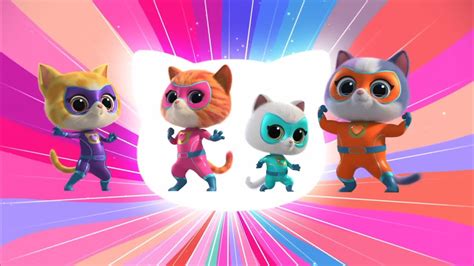
Millennials are claiming credit for revitalizing industries once declared dead, citing their unique approaches and priorities as key drivers of resurgence. Industries like vinyl records, travel agencies, and even physical books are experiencing unexpected booms, thanks, in part, to the millennial generation’s embrace and re-invention of these sectors.
A recent online discussion, sparked by user contributions, reveals how millennials are actively reshaping the economic landscape. The conversation highlights numerous examples where the generation’s influence has breathed new life into seemingly obsolete industries. Far from being industry killers, as some stereotypes suggest, millennials are demonstrating a knack for innovation and adaptation, injecting fresh perspectives and technologies into established markets.
“I think a lot of things get written off as ‘dead’ or ‘dying’ because old business models aren’t working,” said one participant in the online discussion, highlighting a central theme of the conversation. “But millennials are finding new ways to make them relevant.” This resurgence is not merely about nostalgia; it’s about reimagining and reinventing these industries for a modern audience.
Vinyl Records: A Resonant Comeback
The resurgence of vinyl records stands out as a prime example of this trend. While digital music dominates the market, vinyl sales have steadily climbed over the past decade, with millennials playing a significant role in this revival. According to the Recording Industry Association of America (RIAA), vinyl sales have seen double-digit growth in recent years, reaching levels not seen since the 1980s.
This isn’t simply about collecting old records. Millennials are drawn to the tactile experience, the perceived superior sound quality, and the ritual of listening to vinyl. Record stores, once on the brink of extinction, are now thriving, often serving as community hubs where music enthusiasts can gather, discover new artists, and share their passion for the format.
Moreover, artists themselves are embracing vinyl, releasing new albums in both digital and analog formats. This provides fans with a tangible connection to their favorite music, something that streaming services often lack. Independent record labels are also finding success by focusing on vinyl releases, catering to a niche market of dedicated listeners.
“It’s not just about the music; it’s about the whole experience,” explains Sarah Miller, a 28-year-old vinyl collector. “Holding the album in your hands, reading the liner notes, carefully placing the needle on the record – it’s a much more immersive way to listen to music.” This sentiment is echoed by many millennials who appreciate the analog warmth and the deliberate act of listening that vinyl provides.
Travel Agencies: Reimagining the Journey
In the age of online booking platforms and travel apps, the idea of using a travel agency might seem antiquated. However, travel agencies are experiencing a resurgence, driven by millennials seeking personalized experiences and expert guidance.
While online platforms offer convenience, they often lack the human touch and in-depth knowledge that a travel agent can provide. Millennials, known for their desire for authentic and unique travel experiences, are increasingly turning to travel agents to curate customized itineraries, navigate complex travel arrangements, and gain access to exclusive deals.
Travel agents are adapting to meet the needs of this tech-savvy generation, utilizing digital tools and social media to connect with clients and offer personalized recommendations. They are also focusing on niche markets, such as adventure travel, sustainable tourism, and cultural immersion, catering to the specific interests of millennial travelers.
“I used to book all my trips online, but I found myself spending hours researching and still feeling overwhelmed,” says Mark Johnson, a 32-year-old millennial who recently used a travel agent for a trip to Southeast Asia. “My travel agent took the time to understand my interests and created an itinerary that was perfect for me. It saved me a lot of time and stress, and I had a much more enriching experience.”
The value of expert advice and personalized service is becoming increasingly apparent to millennials who are willing to pay a premium for a seamless and unforgettable travel experience.
Physical Books: The Enduring Appeal of Print
Despite the rise of e-books and audiobooks, physical books continue to hold a special place in the hearts of many millennials. Bookstores are not relics of the past; they are evolving into vibrant community spaces, hosting author events, book clubs, and workshops.
While e-books offer convenience and portability, physical books provide a tactile and sensory experience that digital formats cannot replicate. The smell of the paper, the feel of the pages, and the weight of the book in your hands all contribute to a unique and immersive reading experience.
Millennials are drawn to the tangible nature of physical books, viewing them as objects of beauty and sources of knowledge. They appreciate the ability to physically own and collect books, building personal libraries that reflect their interests and values.
“I love the feeling of holding a book in my hands and turning the pages,” says Emily Carter, a 26-year-old avid reader. “It’s a much more relaxing and engaging experience than reading on a screen. Plus, I love the way books look on my shelves. They’re like little pieces of art.”
Independent bookstores are thriving by offering curated selections of books, hosting community events, and providing personalized recommendations. They are creating spaces where book lovers can connect with each other, discover new authors, and celebrate the joy of reading.
Beyond the Headlines: Other Industries Reimagined
The list of industries experiencing a millennial-driven resurgence extends beyond vinyl records, travel agencies, and physical books. Other examples include:
- Board Games: Once considered a children’s pastime, board games are now a popular social activity for adults, with millennials driving the demand for complex and strategic games.
- Gardening: With a growing interest in sustainability and healthy living, millennials are embracing gardening, both indoors and outdoors, growing their own food and creating green spaces in urban environments.
- Crafting: From knitting and sewing to pottery and woodworking, crafting is experiencing a revival, with millennials seeking creative outlets and opportunities to learn new skills.
- Handwritten Notes: In a digital world, the act of writing a handwritten note has become a thoughtful and personal gesture, with millennials using stationery and personalized cards to connect with loved ones.
- Typewriters: The mechanical nature and unique aesthetic of typewriters have captured the imagination of millennials, who are using them for creative writing, art projects, and personal correspondence.
The Millennial Mindset: Driving the Change
What is it about millennials that is driving this resurgence of seemingly obsolete industries? Several factors contribute to this trend:
- A Desire for Authentic Experiences: Millennials are seeking authentic and meaningful experiences that go beyond the superficial. They are drawn to products and services that offer a tangible connection to the past and a sense of connection to their community.
- A Rejection of Mass-Produced Goods: Millennials are increasingly rejecting mass-produced goods in favor of handcrafted, artisanal products that are made with care and attention to detail.
- A Focus on Sustainability: Millennials are environmentally conscious and are seeking products and services that are sustainable and ethical. They are willing to pay a premium for products that are made with recycled materials, support local businesses, and minimize their environmental impact.
- A Value for Community: Millennials are seeking community and connection in a digital world. They are drawn to businesses that foster a sense of belonging and provide opportunities for social interaction.
- Embrace of Technology: Millennials are leveraging technology to reinvent old industries. Online platforms and social media are used to connect with customers, promote products and services, and build communities.
The Economic Impact: A Positive Shift
The millennial-driven resurgence of these industries is having a positive economic impact, creating jobs, supporting local businesses, and revitalizing communities.
- Job Creation: The growth of these industries is creating new jobs in manufacturing, retail, and service sectors.
- Support for Local Businesses: Millennials are more likely to support local businesses, contributing to the economic vitality of their communities.
- Revitalization of Communities: The resurgence of these industries is helping to revitalize communities by attracting new businesses, creating gathering places, and fostering a sense of community pride.
Challenges and Opportunities: Navigating the Future
While the future looks bright for these revitalized industries, there are also challenges to overcome:
- Maintaining Authenticity: As these industries grow, it is important to maintain the authenticity and quality that initially attracted millennials.
- Adapting to Changing Tastes: Millennials are a dynamic and ever-changing generation. Businesses must be able to adapt to their evolving tastes and preferences.
- Competing with Online Platforms: Online platforms offer convenience and competitive pricing. Businesses must find ways to differentiate themselves and offer unique value propositions.
The key to success lies in embracing innovation, focusing on customer experience, and staying true to the values that resonate with millennials. By doing so, these industries can continue to thrive and contribute to a vibrant and sustainable economy.
The millennial generation is not merely preserving the past; they are actively shaping the future. Their unique perspectives and priorities are driving a resurgence of industries once considered obsolete, demonstrating their power to transform the economic landscape.
Frequently Asked Questions (FAQ):
-
What specific industries are millennials credited with revitalizing, according to the article? According to the article, millennials are credited with revitalizing industries such as vinyl records, travel agencies, physical books, board games, gardening, crafting, handwritten notes, and typewriters.
-
Why are millennials drawn to vinyl records despite the popularity of digital music? Millennials are drawn to vinyl records for the tactile experience, the perceived superior sound quality, the ritual of listening, and the sense of connection to the music that streaming services often lack. They appreciate the tangible aspect of owning and collecting records.
-
How are travel agencies adapting to appeal to millennial travelers? Travel agencies are adapting by using digital tools and social media to connect with clients, offering personalized recommendations, focusing on niche markets like adventure travel and sustainable tourism, and providing expert guidance to create customized itineraries.
-
What factors contribute to millennials’ preference for physical books over e-books? Millennials appreciate the tactile and sensory experience of physical books, including the smell of paper, the feel of the pages, and the weight of the book. They also value the ability to physically own and collect books, building personal libraries.
-
What is the overall economic impact of millennials’ involvement in these revitalized industries? The economic impact is positive, including job creation in manufacturing, retail, and service sectors, support for local businesses, and the revitalization of communities through attracting new businesses and fostering community pride.
-
What are some challenges that these revived industries face in the future? Challenges include maintaining authenticity as they grow, adapting to the evolving tastes of millennials, and competing with online platforms.
-
Besides a love of nostalgia, what other motivations drive millennials to support these seemingly obsolete industries? Beyond nostalgia, millennials are driven by a desire for authentic experiences, a rejection of mass-produced goods, a focus on sustainability, a value for community, and the embrace of technology to reinvent these industries.
-
How has technology played a role in the resurgence of these industries? Millennials leverage technology, particularly online platforms and social media, to connect with customers, promote products and services, build communities, and create innovative business models within these industries.
-
Are millennials the sole reason for the revival of these industries? While millennials are a significant driving force, other factors such as broader cultural shifts, renewed appreciation for craftsmanship, and marketing efforts targeted at specific demographics also contribute to the revival of these industries.
-
How do independent bookstores and record stores cater to the millennial demographic? Independent bookstores and record stores cater to millennials by offering curated selections, hosting community events like author signings and listening parties, providing personalized recommendations, and creating spaces for social interaction and discovery.
-
What examples are given of “handcrafted, artisanal products” that millennials are drawn to, as mentioned in the article? While the article does not provide an explicit list of specific handcrafted goods, based on mentioned industries it can be inferred that handcrafted vinyl records, handmade books, garden-grown produce, hand-knit products, and custom woodworking items would be examples.
-
How are millennials applying sustainable principles to their involvement in industries like gardening and crafting? In gardening, millennials focus on growing their own food organically, composting, and using sustainable gardening practices. In crafting, they often repurpose materials, choose eco-friendly supplies, and support local artisans who use sustainable methods.
-
Can you describe the role of social media in the resurgence of industries like board games and handwritten notes? Social media helps to create communities around these industries, allowing enthusiasts to connect, share their experiences, discover new products, and organize events. It also provides a platform for businesses to market their products and services and build brand awareness.
-
How does the article define “authentic experiences,” and how do they relate to the millennial generation? “Authentic experiences” as presented in the article implies a move away from the superficial and mass-produced, toward something genuine, meaningful, and rooted in tradition or craftsmanship. Millennials are depicted as valuing these experiences because they offer a deeper connection to a product, activity, or community.
-
What are some examples of unique value propositions that businesses in these revitalized industries offer to compete with online platforms? These businesses offer personalized service, expert advice, curated selections, community-building events, and a tangible experience that cannot be replicated online. They focus on creating a unique and memorable experience for their customers.
-
In what ways are millennials changing old business models to make them relevant to today’s consumers? Millennials are infusing technology, emphasizing sustainability, fostering community engagement, prioritizing personalized service, and adapting to evolving consumer preferences to reshape old business models.
-
The article mentions the importance of “community pride.” How are millennials fostering this in relation to the industries they are revitalizing? Millennials foster community pride by supporting local businesses, organizing events that bring people together, promoting their community’s unique culture and traditions, and advocating for policies that benefit their community.
-
What does the article suggest are some essential strategies for these industries to continue thriving? The article suggests embracing innovation, focusing on customer experience, and staying true to the values that resonate with millennials, such as authenticity, sustainability, and community engagement, are essential strategies for continued thriving.
-
What are some statistics that show vinyl records and physical book sales? According to the Recording Industry Association of America (RIAA), vinyl sales have seen double-digit growth in recent years, reaching levels not seen since the 1980s. While specific statistics for physical books are not given, the article highlights that bookstores are evolving into vibrant community spaces.
-
Can you explain the difference between the old business models and the new approaches being taken by millennials? Old business models often focused on mass production, standardization, and cost-cutting, whereas the new approaches driven by millennials emphasize personalization, sustainability, community engagement, and a focus on quality over quantity.
-
What is the article’s tone towards the millennial generation’s impact on these industries? Is it positive, negative, or neutral? The article’s tone is largely positive, highlighting the millennial generation’s role in revitalizing industries and positively shaping the economic landscape through their unique values and innovative approaches.
-
How are Millennials using technology to give these industries a boost? Millennials use technology to connect with customers through social media, market unique products, build communities, and create new business models.
-
How are Millennial values like sustainability and community contributing to the rise of these industries? Millennials’ focus on sustainability and community drives them to support local businesses and handmade or repurposed items while creating local community pride that makes the items more appealing.
-
Why is it important for these industries to maintain authenticity as they grow? It is important to maintain authenticity as these industries grow because that is one of the things that drew Millennials to these industries in the first place. Maintaining this authenticity will keep customers happy and ensure future success.
-
How have consumer preferences of Millennials changed how these once obsolete industries operate? Consumer preferences of Millennials such as personalization and sustainability require innovation on these industries’ parts to provide things mass-produced models did not.









